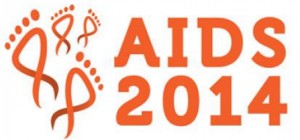Health Communication is Key for Achieving an AIDS-Free Generation
 The year actor Rock Hudson died from AIDS-related causes, global health officials held the first International AIDS conference in Atlanta. It was 1985 and little was known about the virus.
The year actor Rock Hudson died from AIDS-related causes, global health officials held the first International AIDS conference in Atlanta. It was 1985 and little was known about the virus.
Prevention through abstinence or condom use was all we had to combat it. But we’ve come a long way in the past 30 years. In addition to having drugs to treat HIV, we know early treatment can help those living with the virus; we know the importance of antiretroviral treatment in preventing mother-to-child-transmission of HIV; we know how important it is to adhere to treatment with ARTs; and we also know voluntary medical male circumcision (VMMC) can lower the chances of acquiring HIV.
Millions of lives have been saved and other promising biomedical interventions are on the horizon. But if we want to believe an AIDS-free generation is truly possible, we cannot ignore the behavioral component of HIV.
Strategically integrating health communication for behavior change with biomedical interventions is the key to successfully preventing and treating HIV worldwide. Otherwise, how do we convince men to undergo VMMC? How will we persuade people to be tested for HIV? How will an HIV-positive pregnant woman learn about preventing mother-to-child-transmission of HIV?
And this communication does not take place at just the individual level. Communities need to be supportive and policies have to create an environment that enables better HIV prevention and care programs.
The Journal of Acquired Immune Deficiency Syndromes (JAIDS) has released a special supplement on the role health communication plays in HIV prevention and care that includes several articles authored by faculty from the Johns Hopkins Bloomberg School of Public Health and its Center for Communication Programs (JHU·CCP). The supplement features evidence of the power of communication and the role it has played and will continue to play in the march towards an AIDS-free generation.
As world health officials gather in Melbourne for the 20th International AIDS Conference and reflect on how far we have come, we hope they will consider the evidence demonstrating the impact health communication has made since the beginning of this epidemic.
Please join the Health Communication Capacity Collaborative (HC3) at a satellite session on Thursday, July 24, at 6:30 pm in Melbourne to review the JAIDS supplement and discuss health communication’s continuing role in the fight against HIV.








Leave a Reply
Want to join the discussion?Feel free to contribute!